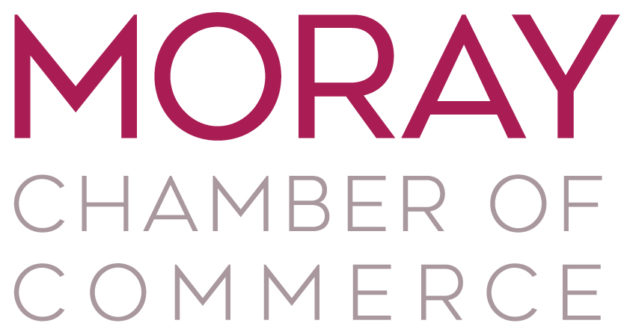Chamber News
Scottish Chambers of Commerce - EU Membership Poll
19 February 2016 • Sarah Medcraf
MEDIA RELEASE:
Solid majority of Scots businesses still favour staying in the EU, although “out” argument gains ground.
A new poll of Scottish Chambers of Commerce members appears to show a slight weakening of business enthusiasm towards EU membership within the last five months, though a solid majority of Scottish businesses would still vote for the UK to stay in the 28-nation group.
According to the new poll, 68% of the Scottish-based Chambers members who responded said that they would vote for Britain to remain a member “if the poll were held tomorrow”. This represents a slight decline from the 74% declaring for staying in the previous survey, conducted in September 2015.
Support for leaving the EU has risen more markedly, from 13.5% to 20%, or one in five of those polled. Meanwhile the number of those who are still undecided has decreased from 12% to 10%.
On the controversial issue of the timing of the referendum, the survey also showed that Scottish respondents have a preference for delaying the poll until September 2016 (25%), with slighty more wishing for the vote to be deferred still further until next year (26%). However 20% of respondents would be content for the poll to be held in June 2016, a date which some Scottish political parties have argued follows too quickly after campaigning for the May 2016 Scottish Parliamentary elections. Only 4.3% of those who stated a preference want the vote to take place in July 2016.
The poll, which asked respondents “What does the EU referendum mean for your business?” also gives a revealing snapshot of current Scottish business attitudes towards the EU, and of Prime Minister David Cameron’s attempts to wrest the much-anticipated “reforms” out of his counterparts on the European continent.
When asked to rate the importance of the referendum on the UK’s membership of the EU to their business, 40.1% of businesses indicated that it was “very important”, while 20.2% stated it was “important”. Conversely, 10.6% stated that it was not important and 6.9% regarded it as “not at all important”.
Areas of potential negative impact for Scottish business if the UK were to vote to leave, were ranked as follows: overall growth strategy (40.2%), company profitability (40.2%) and import/supply chain strategy (36.3%).
Out of the four objectives outline outlined by the Prime Minister as priorities for his renegotiation of the UK’s membership of the European Union, the three that respondents thought most likely to have a positive impact were: "Boosting competitiveness by setting a target for reducing the ‘burden’ of red tape" (63.0%), "exempting Britain from ever-closer union", “enhancing national parliaments’ ability to block EU legislation" (43.5%) and "ensuring that steps to further financial union cannot be imposed on non- Eurozone countries, such as the UK" (38.7%).
Scottish businesses seem relatively less concerned by the issue of restricting migrants’ benefits as an issue that could potentially affect their business. Just under a quarter (24.8%) state that an agreement to restrict benefits would have a positive impact, while 54.1% say that it would have no impact, and only 11.3% indicated that it would have a negative impact.
However despite all the political emphasis currently being placed on the details of David Cameron’s attempted renegotiation, the majority of businesses (64.7%) stated that it was “unlikely” that the outcome of the Prime Minister’s efforts would affect their voting intentions in either direction.
The survey also reveals little evidence so far that the Conservative UK Government’s decision to hold an in-out referendum on EU membership would in itself be a damaging distraction in the eyes of Scottish business. The majority of respondents reported that the referendum debate so far has had “no impact” on the following key aspects of their business: business orders and sales (85.7%); ability to recruit new staff (91.2%); ability to attract investment (86.8%) or additions to the total costs incurred by their business e.g. overheads, staff costs etc. (86.9%).
Liz Cameron, chief executive of Scottish Chambers of Commerce said: “There is no doubt that the EU referendum debate is being taken very seriously by the Scottish business community and we will continue to watch for shifts in sentiment. We hope that businesses will continue to study the issues and weigh very carefully the implications of staying in or getting out on job security and future trading opportunities.”
She added: “Growing Scotland’s exporting opportunities is a priority for business, irrespective of the outcome of the EU referendum. Scotland’s exports to the EU fell by 7.8% to £11.6 billion, according to the most recent export figures but this still accounts for 42% of the international market for our goods and services. Scottish businesses will be keen to hear from both sides of the EU referendum debate as to how their competing visions would deliver more exporting opportunities and enable increased growth and competitiveness.”
NOTES TO EDITORS:
Of the 456 Scottish Chambers of Commerce members taking part in the survey, 39% export goods and services to the EU and 37% to countries outside the EU, while 55% do not export. With imports, the figures are 40% importing goods and services from inside the EU and 30% from outside the EU, with 54% not currently importing. Those responding are spread throughout a wide range of sectors, with the largest identified groups being professional and business services (including financial legal real estate, office and advertising activities) at 23% and manufacturing (production of goods for sale) at 12%. The survey was conducted between 26 January 2016 and 8 February 2016 and forms part of a wider UK survey of Chambers of Commerce members across all four UK nations.


















